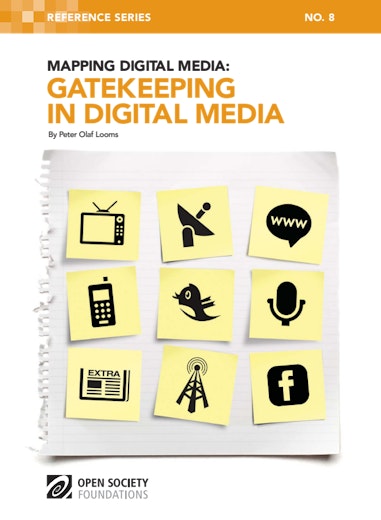The Mapping Digital Media project examines the global opportunities and risks created by the transition from traditional to digital media. Covering 60 countries, the project examines how these changes affect the core democratic service that any media system should provide: news about political, economic, and social affairs.
Who decides what is going to be covered on the TV news each evening? Why do pay-TV and mobile phone operators ask consumers to sign up for at least six months or even longer? For anyone interested in the workings of media, “gatekeeping” is a central concept. It provides a way of understanding organizational processes: how journalists and managers source, filter, and edit content on its way to the end user.
Gatekeeping helps us understand the ecology of the media market, in particular competition and cost, by explaining how incumbents defend their market positions—and why keeping customers is so important. Gatekeeping also involves checks and balances including regulation of media. Here the emphasis is on how gatekeeping affects the workings of the economy, and how governments strike a balance between top-down regulation and free-for-all competition.
Gatekeeping need not be insidious if the control mechanisms are transparent and the implications are clear. This paper proposes three actions that can strengthen the transparency of, and in, gatekeeping.
Download
-
Mapping Digital Media: Gatekeeping in Digital Media (202.84 Kb pdf file)
Download the complete 23-page report.
